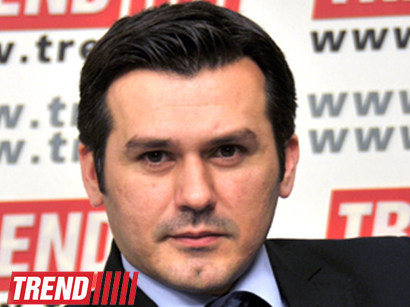Baku, Azerbaijan, Oct. 3
By Rufiz Hafizoglu - Trend:
On Oct. 2, Turkey's Grand National Assembly (TBMM) adopted a mandate authorizing the country's army to participate in military operations in Syria and Iraq.
An open vote was held for adoption of the mandate with participation of 396 MPs. Some 298 of them voted for granting the mandate, while 98 MPs voted against it.
The army's mandate will be valid for one year.
The document was supported by Turkey's ruling Justice and Development Party (AKP) and the Nationalist Movement Party (MHP).
Earlier, the Republican People's Party (CHP) and the pro-Kurdish People's Democratic Party (HDP) said they will not support the document.
A similar mandate was granted to the Turkish army during Saddam Hussein's reign in Iraq, to carry out military operations in this country.
At that time, under the mandate, Turkish army conducted 24 military operations in Iraq against the terrorists of the Kurdistan Workers' Party, known as the PKK.
On the other hand, the Syrian mandate was adopted in 2012. Indirectly, Ankara had a right to hold military operations in Iraq and Syria as part of the adopted mandates.
And yesterday, the parliament united both of these mandates.
What does the mandate say?
Under the mandate, adopted yesterday, Turkey is authorized to take any action against terror and other threats aimed at the country, and repel the risk that may come from terrorist groups in Iraq and Syria.
Turkey is also authorized to protect its interests before and after any crisis, as well as, if necessary, to use army in military operations in other countries (Syria and Iraq).
However, the mandate also includes a possibility of presence of foreign military units in the country, and using them when necessary in line with the Turkish government's instructions.
No doubt that the mandate, along with fighting against terrorist groups, also helps to address any threat that may come from the Syrian authorities.
"Using chaos, the terrorist groups, acting in neighboring Iraq, created the chaos in this country too with the support of Bashar al-Assad's regime," says one of the mandate's main points related to Syria.
Buffer zone in Syria
While discussing the mandate in the parliament, Turkish National Defense Minister Ismet Yilmaz said that one should not expect Turkey's rapid military intervention in Syria and Iraq.
Turkish Prime Minister Ahmet Davutoglu said that Turkey will do everything possible to protect Kurdish city of Kobani in Syria from the Islamic State (IS, formerly ISIL or ISIS). Davutoglu's words give reason to say that the Turkish soldiers will likely to cross the Syrian border in the next few days.
It should be stressed that the adoption of the "mandate of October 2" in the Turkish parliament was ambiguously considered by the neighboring countries.
Despite the elimination of the IS terrorist organization is in the interests of Iran, Tehran expressed its concern. During a phone conversation with his Turkish counterpart, Iran's Foreign Minister Mohammad Javad Zarif said that Ankara's this action will more exacerbate the situation in the region.
Tehran also fears that after liberating some Syrian lands from the terrorists, the Turkish army will deliver them to the Free Syrian Army. Thus, it will create a solid basis for the opposition in the fight against Assad's government. But Ankara will unlikely to take such an action and the Free Syrian Army, controlling other cities of Syria, will unlikely to agree with it.
Controlling most of the Syrian-Turkish border by the IS makes Ankara to resort to more effective actions.
So, one of the country's most important tasks is to create a no-fly buffer zone in Syria. This, however, doesn't mean solving the problem, as by creating such a zone is not in the interests of the PKK terrorist organization, at least, because it will strengthen Turkey's control over the region.
Rufiz Hafizoglu is the head of the Trend Arab News Service






